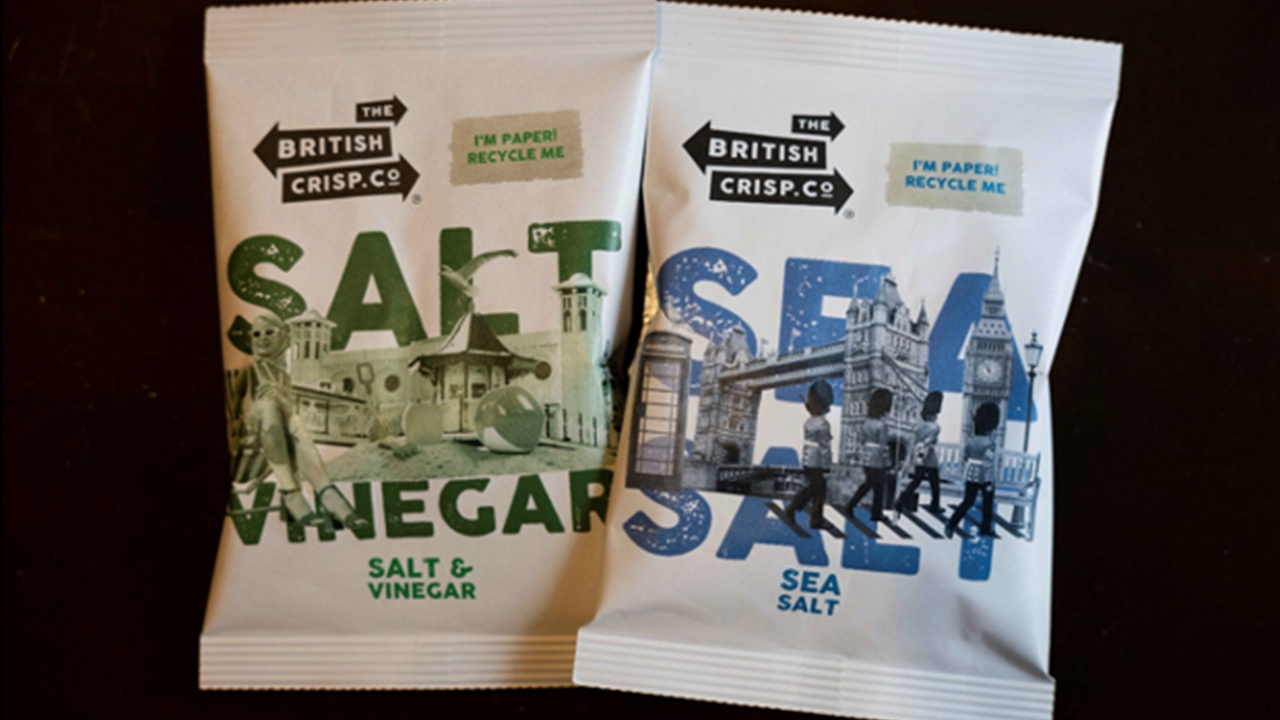
The British Crisp Co. has announced the launch of what they claim to be the UK's "first" fully kerbside-recyclable paper crisp packet. This initiative aims to address the issue of eight billion crisp packets annually ending up in landfills or being incinerated.
Aquapak's Hydropol polymer, known for its recyclable, repulpable, and compostable properties in marine environments, has been utilized to laminate the packets. This addition of the polymer is reported to enhance the packet's strength and provide barriers against oxygen, oil, and grease.
Should Hydropol find its way into the environment, its non-toxic and water-soluble nature is expected to ensure safe breakdown, resulting in no microplastic leakage. Its solubility in water is also anticipated to facilitate 100% paper fiber recovery in paper recycling mills.
A "very thin" layer of vacuum-deposited aluminum has been incorporated into the crisp packets to maintain product freshness, without compromising their recyclability. OPRL has certified these packs as recyclable, allowing them to be collected alongside other paper materials through consumer kerbside collections.
Tom Lock, CEO of British Snack Company, emphasized the environmental impact of traditional crisp packets, stating, "Brits consume over eight billion packets of crisps each year, the majority of which are not recyclable and end up in landfill or incinerators." He expressed pride in partnering with Evopak to introduce the fully recyclable crisp packet, meeting consumer demands.
Mark Lapping, CEO of Aquapak, hailed the launch as a significant milestone for their Hydropol technology, offering brands and producers a functional and recyclable alternative at scale.
Daniel McAlister, Director of Business Operations at Evopak, highlighted the versatility of the unique paper developed with Hydropol, foreseeing its potential to revolutionize packaging across various sectors, including snacks, petcare, and dry foods.
Hydropol is positioned as a solution that matches the functionality and performance of conventional plastics while enhancing recyclability and reducing plastic pollution. Its applications extend to reusable, heat-sealable paper mailing bags.
Previously, in 2022, TIPA integrated Hydropol into their efforts to develop high-barrier, PVDC-free, compostable packaging films, aiming to improve packaging performance and end-of-life outcomes.
Meanwhile, Parkside collaborated with food and drink brand SMUG to provide a "100% compostable" crisp packet using its Park2Nature certified home compostable laminate, claimed to biodegrade in domestic compost heaps within 26 weeks.
Most recently, INEOS Olefins & Polymers Europe, PepsiCo, Amcor, and others collaborated to package Sunbites crisps in new film packaging containing 50% chemically recycled plastic, as part of the PepsiCo Positive (pep+) initiative targeting the elimination of virgin fossil-based plastic in crisp and chip bags from PepsiCo's European supply chain by 2030.



